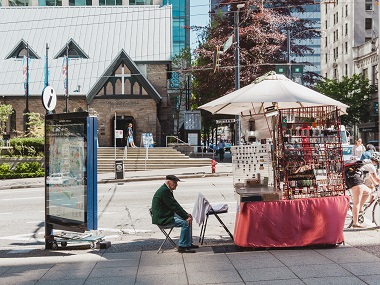
The City of Vancouver is beginning to recognize that churches create healthy communities.
City hall usually seems to have already made up its mind by the time we hear about its various initiatives. But Vancouver Plan looks like a real opportunity to have some input. The City of Vancouver is asking all its residents to take part in a three-year process.
This is an excellent opportunity for the Christian community to step forward as a strong partner for the city.
A friend urged me to write on this topic; I thought her suggestion made good sense:
I read Jonathan Bird’s series on the City of Vancouver’s Healthy City Strategy with interest when it came out [earlier this year]. I thought other readers might be interested in taking part in the survey the City has just launched soliciting input from the general public.
I thought this would be a good way for people to express how important places of worship – and faith and worship in general – are to their health and well-being. Jonathan has noted that the City found it difficult to understand the intrinsic value of places of worship as places of worship, ie. apart from their use as daycare providers or feeding the hungry, etc.
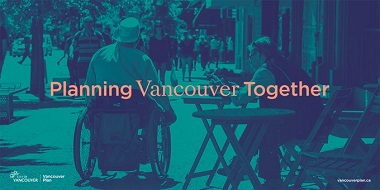
City of Vancouver tweet December 11: Get ready for Planning Vancouver Together! . . .
People can express their ideas answering open-ended questions at www.vancouverplan.ca. They’ll be sifting through the feedback in-house.
Vancouver Plan is open to all kinds of participation; the City says:
Over the next three years we are asking for your help in creating the Vancouver we want and need. Together let’s create a new Vancouver Plan, one that sets directions for maximum impact and guides future priorities.
Are you willing to share your unique experiences, talent and perspectives to help us create a shared vision for a healthier, happier and more resilient Vancouver for generations to come?
Here are some reasons why this is a good time for churches and individual Christians to engage with the city.
1. City cares about ‘places of worship’
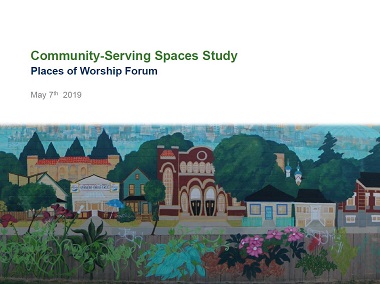
The Community-Serving Spaces Study was carried out for the City of Vancouver.
In the series of articles referred to above, Jonathan Bird wrote about this rather novel phenomenon, that the City cares about ‘places of worship.’
He began by listing some of the major challenges facing churches in Vancouver now. The affordability crisis is undermining the viability of many congregations. Many families have been priced out of the market and are moving to the suburbs, leaving behind smaller congregations with fewer resources to reach out or even keep up with building repairs.
He said:
No surprise, then, that real estate developers are circling church properties like birds of prey.
But it’s not just pastors and denominational executives who are alarmed. City hall is too, albeit for different reasons.
In the secular terms of municipal zoning and planning, “places of worship” are extremely valuable – well nigh irreplaceable – insofar as they function as “community-serving spaces” for a wide gamut of uses that make for a more resilient, neighbourly, equitable and creatively expressive city. . .
City of Vancouver staff from five departments are engaged in two major projects to draft policy changes they hope will preserve, enhance and expand community-serving spaces in Vancouver for generations to come.
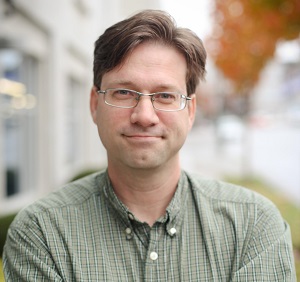
Jonathan Bird
One is the Affordable Housing and Community Spaces Incentive Program (AHCSIP), which is focused on helping places of worship as well as non-profit housing operators and societies.
The second is the Community-Serving Spaces Policy, which is focused on places of worship, Legion Halls, ethnic culture centres, neighbourhood houses, etc.
I’m delighted to be involved in this process as I was contracted by the City to facilitate two focus groups earlier this year as well as a larger forum May 7, for places of worship that have attempted or are seriously considering to redevelop their property to include affordable housing and/or enhanced community-serving spaces.
There is much more, and all church leaders in Vancouver would benefit from reading Jonathan’s first, second and third reports. It is also encouraging to know that the City would like him to lead another forum early next year, and that he will be leading a panel on ‘spiritual/civic issues at Missions Fest.
2. City historically has shown little interest
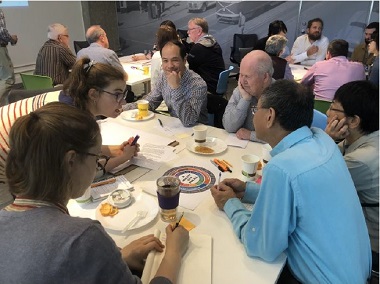
Group conversation at Community-Serving Spaces Stakeholder Forum in May.
Even though the City is now showing interest in faith groups and their ‘community-serving spaces,’ it still has little understanding of how to interact with those groups.
Though he felt quite encouraged after being asked to facilitate the gatherings in May, Jonathan said:
But the forum[s] made something else painfully clear: quite apart from whatever the City needs to learn for moving past transactional relationships to genuine partnership with community groups (and other sectors), the City has absolutely no idea how to relate to religious groups as communities of faith.
Not only is the City incapable of recognizing “common good” or public value in places of worship as places of worship, it currently gives no room at all in its current vision of urban flourishing for spirituality of any kind. The topic appears nowhere in the Healthy City Strategy or other guiding documents.
I have noted this phenomenon several times over the years. For example:
- Planners don’t see much of a role for the West End church
- Grandview-Woodland Community Plan overlooks contribution of churches
3. Halo Project demonstrates value
 There is, fortunately, convincing evidence of the value that churches offer to their surrounding communities.
There is, fortunately, convincing evidence of the value that churches offer to their surrounding communities.
The Halo Project demonstrates that “For every dollar a religious congregation spends on its programs, the city gets an estimated $4.77 worth of common good services.”
Pastor Trevor Vanderveen relied on the Halo Project, in part, when he visited with city officials in 2016 to point out some flaws in a new Community Plan for Grandview-Woodland:
I also noticed how church properties were identified as future locations of residential developments, without mention of how these properties are currently being used.
These churches not only offer cultural diversity to the neighbourhood by encouraging integrated spiritual lives, but many of them also offer the neighbourhood much-needed services that the city is actually depending on.
Churches lead kids day camps, host community meals, run church gardens, help refugees, assist underemployed neighbours, take offerings for other groups that do similar work and make space available for recovery groups – the list could go on. Christians are together making a positive impact on the well-being of our city.
(He wrote about it in ‘Grandview-Woodland Community Plan overlooks contribution of churches’; see link just above.)

Trevor Vanderveen is pastor of First Christian Reformed Church.
The good news is that Vanderveen didn’t satisfy himself with writing about the situation, he took action. Following a very profitable meeting with city councillor and neighbour Andrea Reimer, as well as two city planners who were overseeing the plan, he reported:
With the advocacy of councillor Reimer, city planners modified the Community Plan one week before it was voted in July 28. They added places of worship to a map of the community (p.181) and, more significantly, added the following policies to Section 13 (p.195).
Section 13.11: Places of Worship reads as follows:
Grandview-Woodland has approximately 16 places of worship that offer space to support the spiritual well-being of residents and visitors. Equally importantly, many of these facilities allow their buildings (and grounds) to be used for community gathering, meetings and a range of activities – including the provision of food security programs, childcare and other programming. As these spaces age, it is important to enable their long-term renewal, where appropriate.
Policies:
Support the renewal of existing places of worship, and their continued use for community purposes
13.11.1 Encourage renovation and reinvestment into existing places of worship. Where appropriate, allow development of these facilities to provide additional height and density with the goal of preserving community spaces over the long term. (Note: Rezoning of existing non-market properties will be subject to urban design analysis including shadow studies and transition to adjacent residential areas. Overall heights and densities should be consistent with those in the surrounding sub-areas.)
13.11.2 Consider incentives to support the retention of social spaces, including: partnerships with the City; heritage revitalization agreements; parking relaxations; capital grants (for registered non-profit facilities); other incentives as appropriate.
Read the rest of City recognizes contribution by ‘places of worship’ in Grandview-Woodland plan.
Act on Vancouver Plan
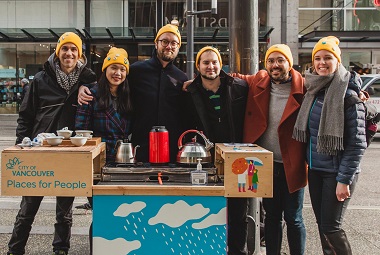
Vancouver Plan is looking for partners. Image: Vancouver Plan
Jonathan Bird and Trevor Vanderveen have led the way; now it’s time for others to join them – and Vancouver Plan provides an ideal opportunity.
The City is asking you to help:
To truly pull off the aspirations of the Vancouver Plan, the City will need to move forward together with other governmental and non-governmental partners to fully bring the plan to life.
Imagine if all the key institutions and organizations that impact our daily life were embracing the same vision and priorities and pulling together towards a desired future. Now that’s powerful!
If you represent an organization that you think might want to join in please email us below and let’s begin Planning Vancouver Together.
Here are the stages of Vancouver Plan:
Listen + Learn: Fall 2019 – July 2020
Your thoughts and ideas will help establish what matters most to us as a city. Together we will identify themes for deeper conversation and define guiding principles for the work ahead.
Envision the Future: September 2020 – January 2021
With your guidance we will explore a range of possible futures for Vancouver discussing ideas, risks, trade-offs and challenges that may shape our future city in an increasingly complex world.
Develop Key Directions: February 2021 – October 2021
Shaped by science and professional analyses we will work with you to translate our shared vision into policy options, choices, and priorities for a preferred strategy to address the challenges of tomorrow.
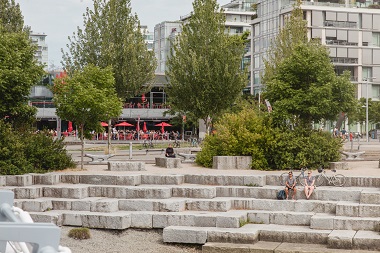
Image from Vancouver Plan website.
From Plan to Actions: November 2021 – July 2022
With a clear sense of the city we want and the choices needed to get us there, we will finalize the plan and tools needed to intentionally direct our actions towards the future we want.
Walk Forward Together: 2022+
With a Council approved Vancouver Plan, we will begin to make the changes and investments needed to intentionally achieve our collective vision as we walk forward together.
Go here to get started. Pastors and leaders, please take part yourselves – and encourage your congregations and networks to do the same. Regular folks – just dive in.
(Advocating for faith groups in the city obviously does not preclude voicing support for any number of issues: more affordable housing, more (or fewer) bike lanes, higher (or lower) taxes, etc. Nor, for that matter, expressing appreciation for what city hall has already accomplished.)
Several media outlets have covered Vancouver Plan:
